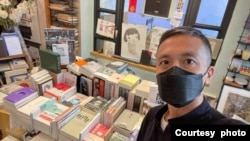When control of Hong Kong was transferred from Britain to the People’s Republic of China in 1997, the PRC agreed to govern Hong Kong under the principle of "one country, two systems.” According to the Sino-British Joint Declaration, for 50 years the city would “enjoy a high degree of autonomy, except in foreign and defense affairs" and the “laws currently in force in Hong Kong [would] remain basically unchanged.”
But as the U.S. State Department’s recent Hong Kong Policy Act Report shows, the PRC is tightening its viselike grip on the city, as the 25th anniversary of Hong Kong’s handover to Beijing approaches. In the words of Secretary of State Antony Blinken, “Over the past year, the People’s Republic of China has continued to dismantle Hong Kong’s democratic institutions, placed unprecedented pressure on the judiciary, and stifled academic, cultural and press freedoms. . .Hong Kong’s freedoms are diminishing while the PRC tightens its rule.”
The report notes that over the past year PRC authorities took actions that eliminated the ability of Hong Kong’s pro-democracy opposition to play a meaningful role in governance. Peaceful political expression critical of Beijing or the local administration was criminalized. Sweeping changes to Hong Kong’s electoral system blocked the participation of political groups not approved by Beijing and “greatly diminished Hong Kong voters’ ability to elective representatives of their choice.”
Among other acts of repression, authorities shut down two of Hong Kong’s largest independent media outlets, Apple Daily and Stand News, and forced the closure of the June 4 Museum, which commemorated the 1989 Tiananmen Square protests. Using the 2020 National Security Law as a pretext, authorities filed charges against more than 160 individuals and organizations. This number includes activists and politicians detained in February 2021 for holding a primary election to select candidates who would represent the prodemocracy camp in the Legislative Council election.
Authorities also arrested and prosecuted activists for speech critical of the central or local governments or their policies, including for comments or posts on social media.
“Beijing will ultimately force many of the city’s best and brightest to flee, tarnishing Hong Kong’s reputation and weakening its competitiveness. . . A fully functioning civil society, rule of law, and individual liberties form the bedrock on which vibrant societies grow,” declared Secretary Blinken. “We stand with the people of Hong Kong.”






